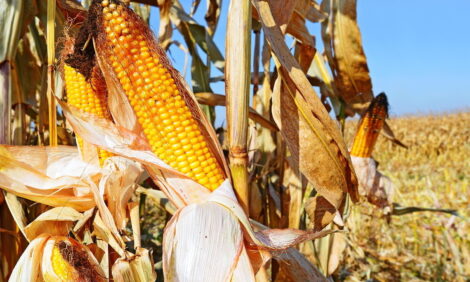



Global Challenge of Food Security
Food security is one of the key global challenges today, writes, TheCattleSite senior editor, Chris Harris.The trends in global population growth and climate change could lead to disaster, but present the food industry with a major challenge.
According to Mark Driscoll, the head of the One Planet Food Programme at the WWF UK, how food is produced is having an enormous impact on the ecology and environment of the plant.
Greenhouse gases are only part of the equation and other measures are impacting on the ecological services of the world and these services are in decline.
"We are living 40 per cent above the earth's ecological limit and we are accumulating and ecological debt," Mr Driscoll told the recent Outlook 2010 conference in London.
"We started living beyond the earth's ability to replenish the earth's own resources in the mid 1980's and in the UK at present we are consuming the resources of three planets.
"The food system must play its part in reducing its impact and must reduce the worst inefficiencies."
Food production accounts for 38 per cent of the ice-free land surface of the world and 23 per cent of the global ecological footprint, he said.
"In the UK, the food we eat contributes 18-20 per cent of our carbon footprint, but when we consider land use change this rises to 30 per cent," Mr Driscoll said.
He said that the world will need to double its food production by 2050 as the global population rises to 9 billion.
This rising population will also produce changing diets with a growing demand for livestock products - meat and dairy products - particularly in countries such as China, India and Brazil.
Mr Driscoll said that climate change will also alter the ability to grow crops and it could become impossible to grow wheat in Africa by 2050 because of the lack of water.
He added that there are other growing concerns over the amount of food that is wasted and also the impact that biofuels are having on food production.
"We need a more collaborative approach," he said.
He called for a sustainable food system with minimal environmental impacts - including low carbon, a minimum water footprint and the maintenance of biodiversity.
Such a secure sustainable food system relies on the economic vitality of the farming industry, he said.
He added that the UK is the first country in the world that has said it will reduce its greenhouse gas emissions by 80 per cent by 2050. However, he added that to do this it was necessary to cut food related emissions by 70 per cent by 2050.
"Reducing emissions from food is essential for reducing climate change emissions," Mr Driscoll said.
He said it was necessary to reduce direct consumption related emissions and also land change use emissions as well as emissions from primary production and emissions from animal products, which alone accounted for 58 per cent of the emissions in the UK food chain.
The potential to reduce emissions can come from decarbonisation programme for energy, a reduction or greenhouse gas emissions such as refrigerants, and methane emissions from livestock, through production efficiencies by reducing waste and by changing consumption habits and through recycling waste.
Mr Driscoll said that one example where indirect emissions could be changed is in the consumption of soya. In 2009 the UK consumed 2.8 million tonnes of soya and the livestock feed takes 82 per cent of the total feed consumption with the poultry sector being the biggest consumer with 57 per cent. However, he added that soya production in Brazil is linked indirectly to deforestation through the conversion of grasslands to arable.
Part of the problem, he said, is there has been a serious lack of investment in agricultural R and D over the last 20 years.
He said there is a need for better animal nutrition and new grass varieties and also for increase use of underused technologies such as biodigestion to improve energy production and increase environmental benefits.
However, he said that improvements in R and D will need financial support for the producers because of the large capital costs and there is also a need for improved feed-in tariffs for producers using biodigestion feeding energy into the grid.
One other way to improve sustainability is to reduce consumption.
"Livestock product consumption is expected to double by 2050," said Mr Driscoll.
"Sustainable production needs sustainable consumption."
He called for a change in the way livestock products are consumed not necessarily the quantity that is consumed.
"We don't want to export the environmental impact of production and consumption.
"We want to produce high quality products with environmental qualities and the UK needs to be ahead of the game in the push for a new low carbon world."
He called for a debate on how to achieve these goals now and he called for interventions without causing harm to the industry.
"Many problems are systemic and the solutions required are greater than the sum of the parts therefore actors across the food chain need to come together on collaborative actions," he said.
"This is going to require partnerships with research institutions, governments, retailers and civil society organisations and it will require trade offs, dilemmas and hard choices."
He said there was a need to eat fewer but high quality meat products with a high premium and he said it is vital that the government in the UK gives the UK industry a framework for a sustainable system.
"In this the supermarkets have a large role to play," Mr Driscoll said.
April 2010


